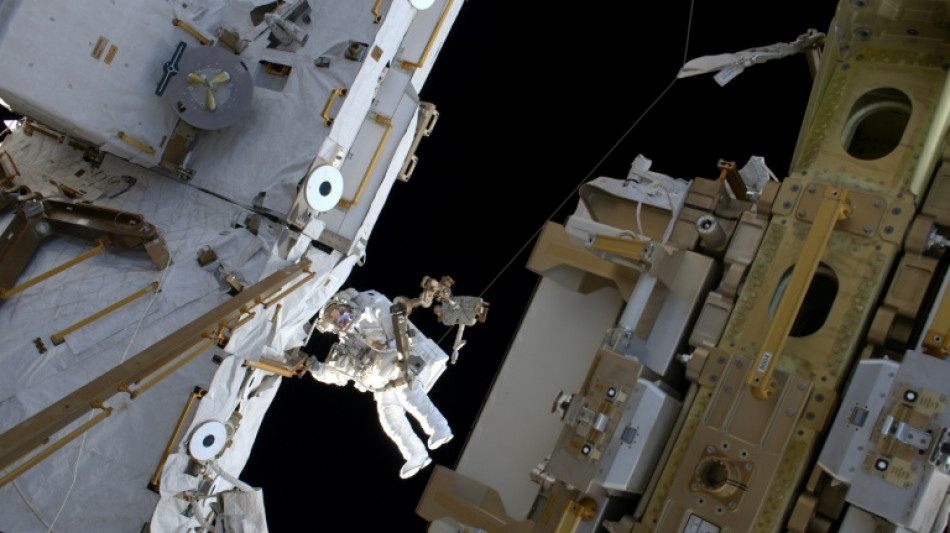
-
 Pakistan's Rauf and Indian skipper Yadav punished over Asia Cup behaviour
Pakistan's Rauf and Indian skipper Yadav punished over Asia Cup behaviour
-
Libbok welcomes 'healthy' Springboks fly-half competition

-
 Reeling from earthquakes, Afghans fear coming winter
Reeling from earthquakes, Afghans fear coming winter
-
Ronaldo reveals emotional retirement will come 'soon'

-
 Munich's surfers stunned after famed river wave vanishes
Munich's surfers stunned after famed river wave vanishes
-
Iran commemorates storming of US embassy with missile replicas, fake coffins

-
 Gauff sweeps Paolini aside to revitalise WTA Finals defence
Gauff sweeps Paolini aside to revitalise WTA Finals defence
-
Shein vows to cooperate with France in probe over childlike sex dolls

-
 Young leftist Mamdani on track to win NY vote, shaking up US politics
Young leftist Mamdani on track to win NY vote, shaking up US politics
-
US government shutdown ties record for longest in history

-
 King Tut's collection displayed for first time at Egypt's grand museum
King Tut's collection displayed for first time at Egypt's grand museum
-
Typhoon flooding kills over 40, strands thousands in central Philippines

-
 Trent mural defaced ahead of Liverpool return
Trent mural defaced ahead of Liverpool return
-
Sabalenka to face Kyrgios in 'Battle of Sexes' on December 28
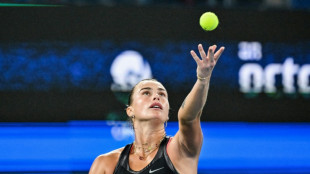
-
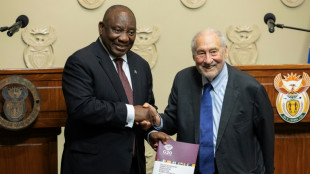 Experts call for global panel to tackle 'inequality crisis'
Experts call for global panel to tackle 'inequality crisis'
-
Backed by Brussels, Zelensky urges Orban to drop veto on EU bid

-
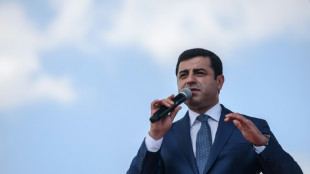 After ECHR ruling, Turkey opposition urges pro-Kurd leader's release
After ECHR ruling, Turkey opposition urges pro-Kurd leader's release
-
UK far-right activist Robinson cleared of terror offence over phone access
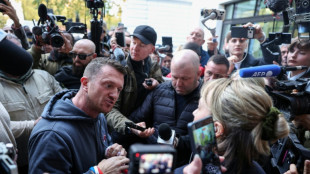
-
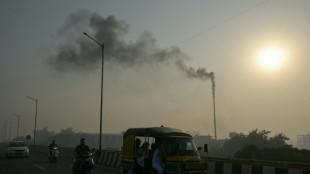 World on track to dangerous warming as emissions hit record high: UN
World on track to dangerous warming as emissions hit record high: UN
-
Nvidia, Deutsche Telekom unveil 1-bn-euro AI industrial hub

-
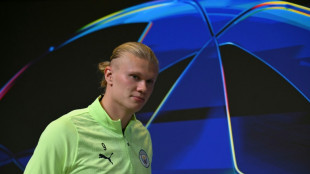 Which record? Haaland warns he can get even better
Which record? Haaland warns he can get even better
-
Football star David Beckham hails knighthood as 'proudest moment'
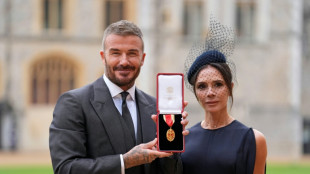
-
 Laurent Mauvignier wins France's top literary award for family saga
Laurent Mauvignier wins France's top literary award for family saga
-
Indian Sikh pilgrims enter Pakistan, first major crossing since May conflict

-
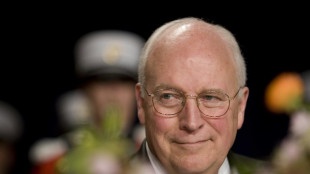 Former US vice president Dick Cheney dies at 84
Former US vice president Dick Cheney dies at 84
-
Fiorentina sack Pioli after winless start in Serie A

-
 Oscar-winning Palestinian films daily 'Israeli impunity' in West Bank
Oscar-winning Palestinian films daily 'Israeli impunity' in West Bank
-
Spain's Telefonica shares drop on dividend cut, net loss

-
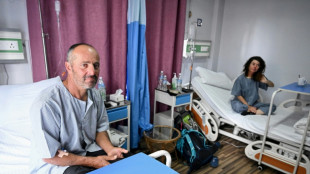 Fierce mountain storms kill nine in Nepal
Fierce mountain storms kill nine in Nepal
-
Divisive Czech cardinal Dominik Duka dies at 82
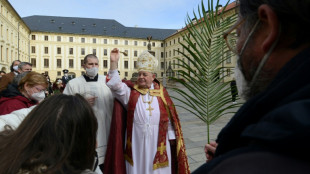
-
 Shein vows to cooperate with France in sex doll probe
Shein vows to cooperate with France in sex doll probe
-
EU in last-ditch push to seal climate targets before COP30
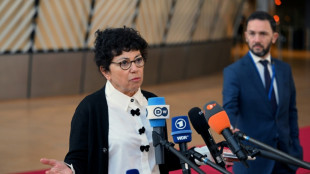
-
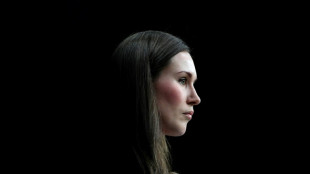 Finnish ex-PM Marin says her female cabinet faced torrent of sexism
Finnish ex-PM Marin says her female cabinet faced torrent of sexism
-
Sudan army-backed council to meet on US truce proposal: govt source
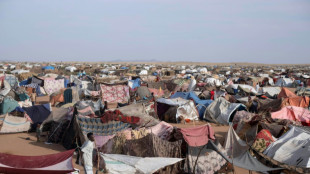
-
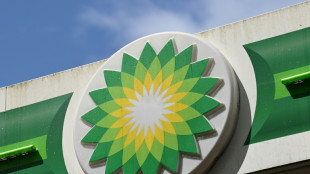 BP profit surges despite lower oil prices
BP profit surges despite lower oil prices
-
Shein vows to cooperate with France in childlike sex doll probe

-
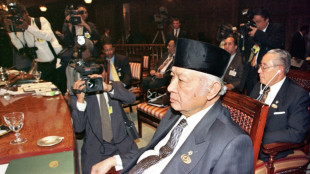 National hero proposal for Indonesia's Suharto sparks backlash
National hero proposal for Indonesia's Suharto sparks backlash
-
Indian great Ashwin out of Australia's BBL after knee surgery

-
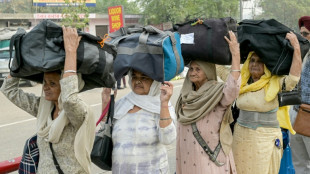 Indian Sikh pilgrims enter Pakistan, first major crossing since May conflict: AFP
Indian Sikh pilgrims enter Pakistan, first major crossing since May conflict: AFP
-
Asian markets slip as traders eye tech rally, US rate outlook
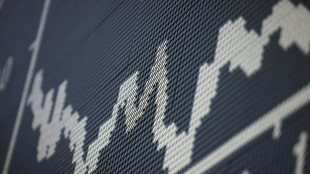
-
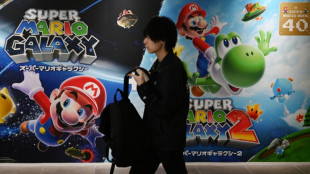 Nintendo hikes Switch 2 annual unit sales target
Nintendo hikes Switch 2 annual unit sales target
-
Typhoon flooding kills 5, strands thousands in central Philippines
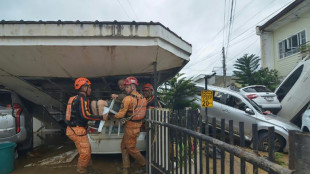
-
 Jobe Bellingham finding his feet as Dortmund head to City
Jobe Bellingham finding his feet as Dortmund head to City
-
US civil trial to hear opening arguments on Boeing MAX crash
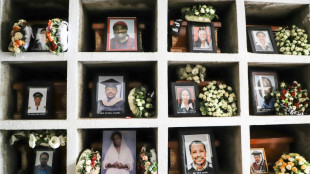
-
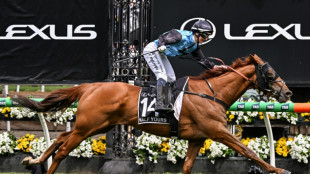 Jamie Melham on Half Yours only second woman to win Melbourne Cup
Jamie Melham on Half Yours only second woman to win Melbourne Cup
-
Myanmar scam hub sweep triggers fraudster recruitment rush
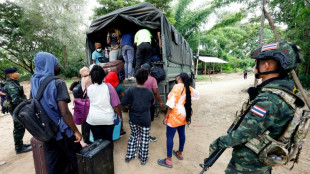
-
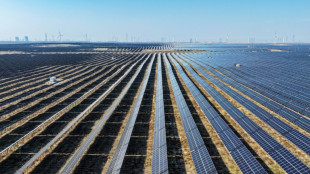 Biggest emitter, record renewables: China's climate scorecard
Biggest emitter, record renewables: China's climate scorecard
-
Floods strand people on roofs as typhoon pounds Philippines
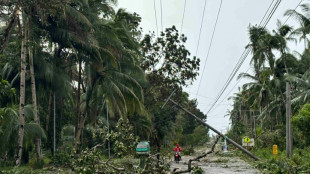
-
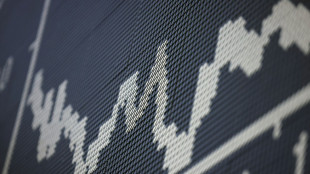 Asian markets swing as trades eye tech rally, US rate outlook
Asian markets swing as trades eye tech rally, US rate outlook
-
South Korea to triple AI spending, boost defence budget

| CMSC | -0.06% | 23.655 | $ | |
| AZN | 0.17% | 81.86 | $ | |
| NGG | 0.45% | 75.08 | $ | |
| SCS | -0.09% | 15.825 | $ | |
| BTI | 0.72% | 52.82 | $ | |
| GSK | 1.14% | 46.885 | $ | |
| BP | 1.64% | 35.45 | $ | |
| BCC | 1.63% | 69.47 | $ | |
| CMSD | -0.21% | 23.85 | $ | |
| RBGPF | 0% | 76 | $ | |
| RYCEF | -1.52% | 15.13 | $ | |
| BCE | -1.59% | 22.315 | $ | |
| RIO | -2.88% | 68.4 | $ | |
| JRI | -0.76% | 13.775 | $ | |
| VOD | -1.52% | 11.21 | $ | |
| RELX | -0.32% | 44.03 | $ |

Lost in space: Astronauts struggle to regain bone density
Astronauts lose decades' worth of bone mass in space that many do not recover even after a year back on Earth, researchers said Thursday, warning that it could be a "big concern" for future missions to Mars.
Previous research has shown astronauts lose between one to two percent of bone density for every month spent in space, as the lack of gravity takes the pressure off their legs when it comes to standing and walking.
To find out how astronauts recover once their feet are back on the ground, a new study scanned the wrists and ankles of 17 astronauts before, during and after a stay on the International Space Station.
The bone density lost by astronauts was equivalent to how much they would shed in several decades if they were back on Earth, said study co-author Steven Boyd of Canada's University of Calgary and director of the McCaig Institute for Bone and Joint Health.
The researchers found that the shinbone density of nine of the astronauts had not fully recovered after a year on Earth -- and were still lacking around a decade's worth of bone mass.
The astronauts who went on the longest missions, which ranged from four to seven months on the ISS, were the slowest to recover.
"The longer you spend in space, the more bone you lose," Boyd told AFP.
Boyd said it is a "big concern" for planned for future missions to Mars, which could see astronauts spend years in space.
"Will it continue to get worse over time or not? We don't know," he said.
"It's possible we hit a steady state after a while, or it's possible that we continue to lose bone. But I can't imagine that we'd continue to lose it until there's nothing left."
A 2020 modelling study predicted that over a three-year spaceflight to Mars, 33 percent of astronauts would be at risk of osteoporosis.
Boyd said some answers could come from research currently being carried out on astronauts who spent at least a year onboard the ISS.
Guillemette Gauquelin-Koch, the head of medicine research at France's CNES space agency, said that the weightlessness experienced in space is "most drastic physical inactivity there is".
"Even with two hours of sport a day, it is like you are bedridden for the other 22 hours," said the doctor, who was not part of the study.
"It will not be easy for the crew to set foot on Martian soil when they arrive -- it's very disabling."
- 'The silent disease' -
The new study, which was published in Scientific Reports, also showed how spaceflight alters the structure of bones themselves.
Boyd said that if you thought of a body's bones like the Eiffel Tower, it would as if some of the connecting metal rods that hold the structure up were lost.
"And when we return to Earth, we thicken up what's remaining, but we don't actually create new rods," he said.
Some exercises are better for retaining bone mass than others, the study found.
Deadlifting proved significantly more effective than running or cycling, it said, suggesting more heavy lower-body exercises in the future.
But the astronauts -- who are mostly fit and in their 40s -- did not tend to notice the drastic bone loss, Boyd said, pointing out that the Earth-bound equivalent osteoporosis is known as "the silent disease".
Canadian astronaut Robert Thirsk, who has spent the most time in space, said that for him bones and muscles took the longest to recover after spaceflight.
"But within a day of landing, I felt comfortable again as an Earthling," he said in a statement accompanying the research.
A.Gasser--BTB




